The Time of Angels - Wikipedia, the free encyclopedia
Season 5, Story 4 (Overall Series Story #210a)
Some tropes are better than others. When mining the horror genre, as
Who often does, it works best when it is selective about which elements it digs out. The one we can't abide outside of the genre is the character whose behavior is so irrational the viewer simply can't accept that they would act as they do. In the genre, it's part of the fun -- I gather, not being fan of it -- to mock that character and anticipate his or her inevitable gutting. The biggest problem I have with "The Time of Angels" is that Amy Pond is that character. All that the character does right up to the moment they break from comprehensible human reactions to events is trumped by that stupid/impossible reaction.
Amy stands fast and reacts with courage and smarts to the threat of the Angel that leaves the video screen. But, when that itch in her eye later turns into sand pouring out her tear duct and she doesn't tell anyone, doesn't freak the f*ck out, and dismisses concern with a casual, "Yeah, I'm fine," the effect is that of a switch being flipped. When she does that, we're no longer enjoying well-crafted suspense -- we're watching another stupid horror movie. Having another character do that might have worked if they were being set up to be a victim of the Angels; it doesn't work to jam Pond into that role though. We knew coming in she was still early in her arc with a long way to go, so we're not even considering she could be killed. As a result, we can't cheer for it to happen, or agonize that it might. (Not that I imagine anyone would've done the former.)
It's a shame, because they did a pretty fantastic job ratcheting up the suspense to that point. Sure, it's kind of obvious all those statues are going to be Angels, but that doesn't take away from how creepy it is that our heroes are walking among them. Having the Angels take over the bodies of the warrior monks, and hearing the voices of their victims might lean a little too hard on what the Vashta Nerada did in The Library, but this is the return of River Song so the callbacks to that story go hand-in-hand with her return.
Stray Observations
Flesh and Stone - Wikipedia, the free encyclopedia
Season 5, Story 5 (Overall Series Story #210b)
 |
I though Nyssa kissing Five was sweet. This is ... ugh.
(Image via hrhoover) |
Second verse, same as the first. Sort of. Again, this episode gets a lot of the suspense-building right, only to spoil the effect with, what I think, are terrible decisions for how to have the characters behave. I'm talking, of course, about Amy throwing herself at the Doctor ,and the Doctor not trying very hard to discourage her. But, I'll save my complaining about that for the discussion of "Vampires of Venice," since long-suffering Rory is back in the mix for that one and it fits just as well there.
Two interesting things are said or revealed in this episode -- one a significant statement the Doctor makes to Amy regarding trust, and the other an explanation as to why Amy doesn't know anything about the Cyber King of Victorian London, The Dalek Invasion of Earth, or about any of the other really obvious alien invasion/interventions that have happened throughout the classic series and up to this season of the new, not forgetting the (ludicrous and annoying) Mystery of Why There Were No Ducks in the Leadworth Duck Pond. (Seriously, of all the things to make a clue, the absence of ducks from a puddle -- an absence explicable by, one supposes, a thousand other perfectly mundane reasons, such as they waddled off to another puddle with better feeding opportunities -- being caused by cracks in time and space disappearing them from existence is the sort of strained whimsy that doesn't sit well.)
DOCTOR: Amy, you need to start trusting me. It's never been more important.
AMY: But you don't always tell me the truth.
DOCTOR: If I always told you the truth, I wouldn't need you to trust me.
As a matter of principle, we should always tell the truth. (The White Lie Strategy having been effectively exposed as moral cowardice by Sam Harris, at least to my satisfaction, in
Lying.) Now, I'm willing to make allowances for the Doctor here and warp the argument a bit so to make the Doctor's lies (generally) cases of short-cutting the need to say: "I can't give you all the information you are asking for because it will take too long to explain why I am taking the actions I am taking, and asking you to take the actions I'm asking you to take, so I'm lying, and I expect to you know I'm lying, to grease the wheels so we can get out of this dangerous situation with at least you alive. I'll explain, or it'll be obvious why I'm lying, later." It's dodgy and doesn't always work, but I take the Doctor's ask of Amy to be an understanding that he's parsing out information according to a strategy he had determined will likely yield the best outcome, and an assertion that (as Time Lord who walks, as Four might have said, in Eternity) he's got the most information, and is the most capable of making use of it. It's a position that subverts the autonomy (and you'd have to think the self-worth) of the companions, but he's the Time Lord, all.
As for the second, the cracks being used to effectively erase parts of history and lay the groundwork for the Universal Reset to Come, well, being on the record as disliking that sort of scope and finding it dramatically unsatisfying, especially with how the crack is later used to reveal the Doctor's Greatest Fear (as we saw -- sorry, will see -- in
"The God Complex") and, later still, to miraculously deliver him a new set a regenerations courtesy of Clara's prayerful appeal in
"Time of the Doctor." Not liking the direction we're being steered doesn't diminish the importance of the crack to the structure of Series Five, and onwards though. So, duly noted.
Let's move on to "Vampires of Venice" & "Amy's Choice" though so I can finish griping about the Bizarre Love Triangle aspect of this Series and get on with ... oh boy, it's the disappointing return of the Silurians after that. We're in for a bit of rough patch, I think ...

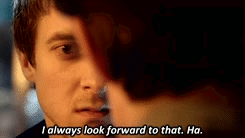



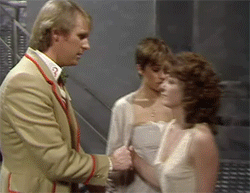
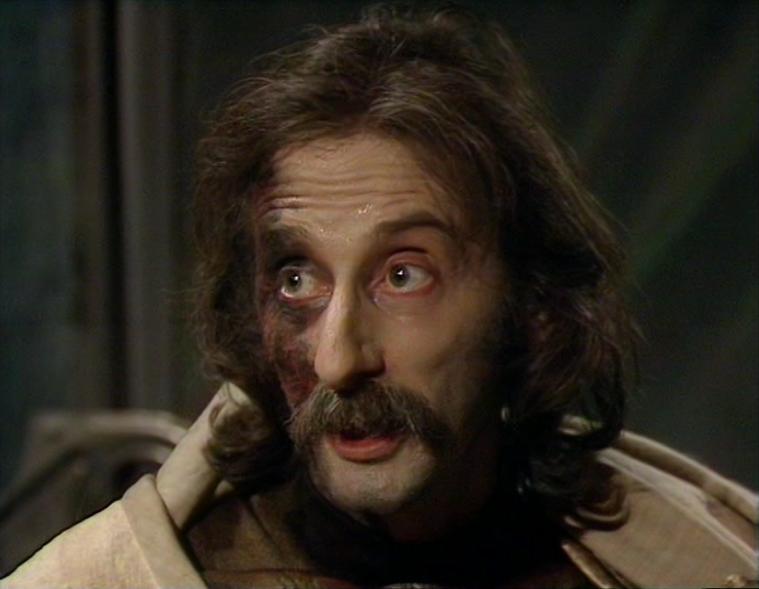


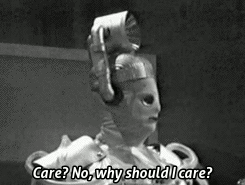
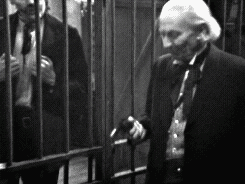
.jpg)



















